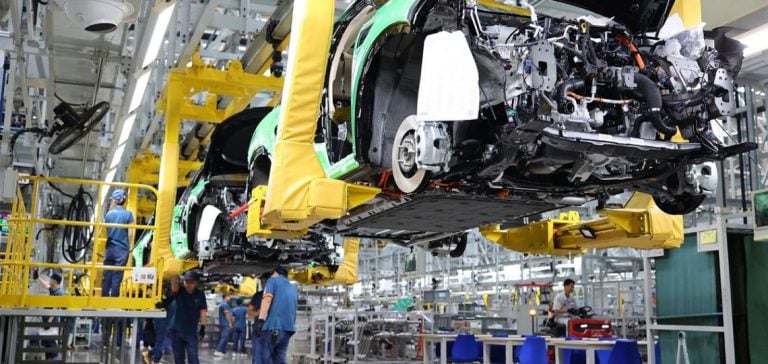The Chinese Ministry of Commerce expresses its firm opposition to the United States Department of Commerce’s plan to ban connected vehicles equipped with Chinese technology from the USA, denouncing it as a protectionist measure contrary to free market principles.
The Chinese Ministry of Commerce strongly criticizes the United States Department of Commerce’s plan to ban the sale of connected vehicles equipped with Chinese technology in the United States.
Beijing regards this initiative as a violation of free market principles and a manifestation of protectionism.
The American proposal targets software and equipment enabling vehicles to communicate with the outside world, essential for driver assistance and autonomous driving.
The Chinese government claims that this measure has no factual basis and constitutes an unjustified interference in international trade.
What’s more, the ban could affect not only Chinese companies, but also international manufacturers who integrate Chinese technologies into their vehicles.
Beijing calls it “economic coercion” that runs counter to the rules of fair competition.
The US administration has not specified which manufacturers or models would be affected by this legislation, which is currently subject to consultation.
Impact on the global automotive industry
This American measure comes against a backdrop of growing tensions between the United States and China.
Although no Chinese-brand vehicles are currently sold in the USA, manufacturers such as Volvo Cars, owned by Zhejiang Geely Holding Group, and Polestar, sell Chinese-made cars on the American market.
In addition, companies such as Tesla, Inc.
produce vehicles in China for export.
The proposed ban could therefore have a significant impact on the global automotive industry.
Manufacturers will have to navigate an increasingly complex regulatory environment, marked by geopolitical considerations and national security concerns.
International supply chains could be disrupted, affecting the production and distribution of connected vehicles.
This raises questions about the potential impact on technological innovation and international partnerships.
Trade tensions and safety concerns
The US administration justifies this proposal on the grounds of national security concerns.
It fears that foreign players could gain access to connected vehicle systems, collect sensitive data or manipulate vehicles remotely.
This move is part of a broader policy of restricting foreign technologies, particularly semiconductors and telecommunications equipment.
For its part, China accuses the United States of protectionism and violation of market economy principles.
The Chinese Ministry of Commerce considers that these measures hinder fair competition and disrupt normal trade.
Beijing calls on Washington to respect international rules and promote a fair trade environment.
Tensions between the two countries could have lasting implications for world trade.
Implications for the future of connected mobility
This escalation of tensions could have major implications for the future of connected mobility.
Automakers and technology providers will have to adapt to a rapidly changing regulatory landscape.
Technological innovations could be held back by trade restrictions and regulatory barriers, impacting the development of autonomous driving and vehicle-infrastructure communication systems.
Industry players are closely monitoring this situation to understand the potential impact on their activities and international partnerships.
Balancing national security concerns with the need to maintain healthy commercial relations remains a major challenge for governments and companies alike.
Decisions taken in this context could shape the future of the automotive industry and global technology.






















